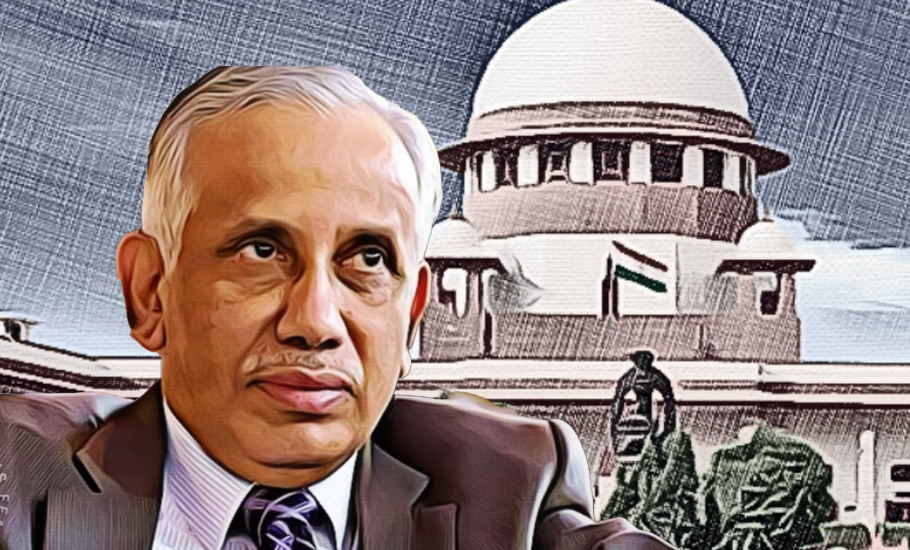
Ayodhya, triple talaq, demonetisation: Key verdicts of retired judge Nazeer, new AP guv

Former Supreme Court judge S Abdul Nazeer was among the six new faces appointed as governors on Sunday (February 12). Justice (Retd) Nazeer has been appointed the Governor of Andhra Pradesh, a little more than a month after his retirement from Supreme Court on January 4. In his tenure of five years and 10 months in the apex court, he was part of several landmark rulings.
The Ayodhya verdict
Justice (Retd) Nazeer was part of several Supreme Court Benches that decided significant and politically sensitive cases. The most high-profile of them was the 2019 Ayodhya verdict that paved the way for building of a temple where the Babri mosque once stood.
In November 2019, a five-judge Constitution Bench, including Justice (Retd) Nazeer, delivered the judgement in the Ram Janmabhoomi-Babri Masjid case, unanimously granting the title over the disputed land in Ayodhya to the deity Shri Ram Virajman. The Sunni Waqf Board was given a five-acre plot in another site to build a mosque.
Though the Ayodhya verdict was unanimous, Justice (Retd) Nazeer had earlier dissented against a 4:1 majority view in a related case. The Supreme Court had refused to refer to a larger Bench the Ismail Farooqui ruling that held that offering prayers in a mosque was not an “essential feature” of Islam. Justice (Retd) Nazeer’s was the lone dissenting voice against the decision.
Also read: Ayodhya verdict: Justice Nazeer most sought judge in matters of religion in SC
The triple talaq case
Justice (Retd) Nazeer was also part of the 3:2 minority opinion in the 2017 triple talaq ruling. He was the only Muslim judge in a five-judge Supreme Court Bench that heard the controversial Triple Talaq case in August 2017.
He and then Chief Justice JS Khehar ruled that the Supreme Court could not interfere in personal laws, while terming the practice of Triple Talaq “sinful in theology.” However, the Bench, by a 3:2 majority, declared the practice of instant divorce among Muslims as “illegal” and “unconstitutional.”
The demonetisation decision
Justice (Retd) Nazeer became part of another politically significant verdict merely a couple of days before his retirement, on January 2. A five-judge Constitution bench led by him, by a 4:1 majority, validated the legality of the government’s process to demonetise 500-rupee and 1000-rupee banknotes through a gazette notification issued on November 8, 2016. The Bench held that the decision-making process was neither flawed nor hasty.
Right to privacy as a fundamental right
In 2017, Justice (Retd) Nazeer was part of a nine-judge Constitution bench that unanimously declared right to privacy as a fundamental right in relation to a case filed by 91-year old retired High Court Judge KS Puttaswamy, challenging the Government’s proposal that the biometrics-based Aadhaar card would be mandatory for access to government services and benefits.
The government argued that the Constitution did not grant specific protection for the right to privacy. However, the Bench held unanimously that the right to privacy was a constitutionally protected right in India and was incidental to other freedoms guaranteed by the Constitution.
Other significant rulings
A day before his retirement, Justice (Retd) Nazeer headed a five-judge Supreme Court Bench that ruled that no additional restrictions other than those permissible under Article 19(2) of the Constitution could be imposed on the free speech of public functionaries.
The issue was to decide whether greater restrictions should be imposed on the right to free speech of ministers, MPs, MLAs, and other persons holding high offices who sometimes make statements that tend to violate the fundamental rights of citizens.
In another key judgement, a three-judge Constitution Bench comprising Justice (Retd) Nazeer, held on August 11, 2020, that daughters cannot be deprived of their right of equality. The Bench ruled that daughters would have equal joint heirship rights in joint Hindu family property even if their father died before the Hindu Succession (Amendment) Act, 2005.
Early life
Justice (Retd) Nazeer was born at Beluvai in Karnataka’s Dakshina Kannada district on January 5, 1958. He earned his LLB degree from SDM Law College, Mangaluru, and enrolled as an advocate on February 18, 1983. He practised in Karnataka High Court for 20 years, after which he was appointed as an additional judge in 2003 and a permanent judge in 2004.
He was elevated to the Supreme Court in 2017, superseding several senior judges and raising eyebrows. However, the Collegium justified his direct elevation as a move to include a judge from the minority community and ensure diversity on the Bench.
A day before he was about to take the oath, his senior colleague in Karnataka High Court, Justice HG Ramesh, refused to be appointed as the Chief Justice of Madras High Court. In an unprecedented move, he wrote to then Chief Justice of India, JS Khehar, “The Constitution of India doesn’t provide for reservation on the basis of religion or caste in the matter of appointment of judges to the high court and Supreme Court.”
(With agency inputs)


